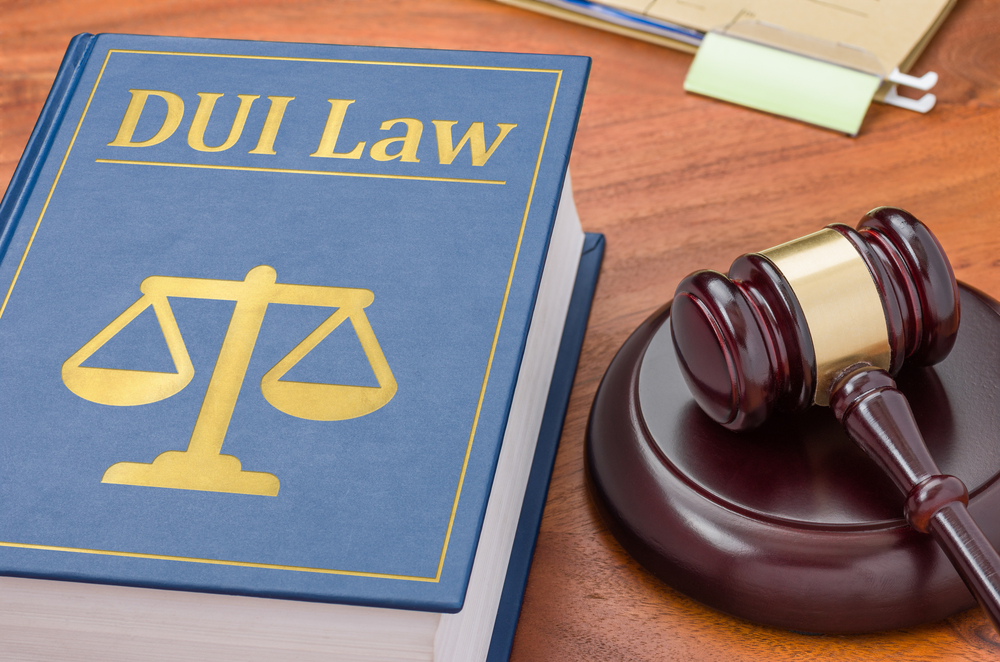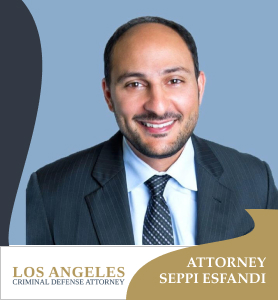
A first DUI conviction is a serious DUI offense. However, the punishment increases for a second DUI offense. If you are convicted for a second offense DUI, you must know your legal options. A second DUI conviction provides a longer mandatory jail time and increased penalty fines. If you don’t play your cards right, you will suffer these consequences.
Employing the legal assistance of a Los Angeles DUI lawyer will help you minimize the possible punishment accompanying your second offense DUI conviction. It’s also possible for them to help you dismiss your charge completely. Our criminal defense attorney specializing in DUI arrest has extensive years of experience protecting the rights of DUI defendants.
This blog article will outline the necessary information you must equip yourself with when facing a DUI conviction. We will outline the basic California vehicle code and other legal codes discussing DUI. In addition, we will also discuss the elements and other aggravating factors that could propel your DUI punishment.
Is a Los Angeles Second Time DUI Offense a Felony or Misdemeanor?
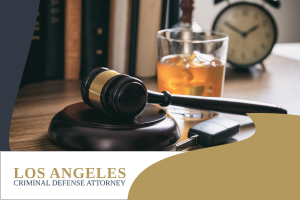
The level of your second DUI offense varies depending on multiple factors. In most cases, a second DUI offense is charged as a misdemeanor. However, it’s worth retaining in mind that the presence of certain aggravating factors could propel your case to a felony DUI conviction.
Generally, a felony offense bears greater punishment than a misdemeanor offense. Your attorney must conduct an in-depth case analysis to ensure that you cannot be convicted for a felony DUI. Hiring the assistance of DUI lawyers is beneficial for you. They can strategize a legal defense that explicitly targets your case’s pain points.
Second DUI DMV Hearing
Similar to your first DUI case, you will need to request a hearing with the DMV or the Department of Motor Vehicle. This hearing will identify whether you will lose your license from the incident. The DMV will go over your case and assess the facts surrounding your arrest.
After your DUI arrest, the arresting officer will issue an official “Notice of Suspension” as a temporary driver’s license. This official notice is only adequate for up to 30 days. After the release of the notice, the convicted defendant needs to request a hearing with DMV within ten days.
During the DMV hearing, the department will question the defendant for the following:
- Recovered evidence and documented police report;
- Provide witness testimonies confirming their claims;
- Cross-reviewing witness testimonies to verify the accounts of the accident;
- Provide your own accounts of the accident.
Suppose you lose your second DMV hearing. In that case, you will have your driver’s license suspended for up to two years. However, you may have the chance to convert this suspension to a restriction if you comply with the DMV’s condition for one year.
Second DUI Restricted License
California adopted a law requiring repeat DUI offenders to install an ignition interlock device (IID). This program is called the Statewide Ignition Interlock Device (IID) Pilot Program. The California DMV developed the aforementioned program.
According to this law, subsequent DUI offenders and DUI offenders involving physical injury are subjected to this program. This program mandates qualified offenders to install an IID for a required amount of time, depending on the number of times they committed a DUI.
To further understand the hierarchy of the IID program, we provided a list below:
- First-time offenders without past DUI conviction: None (if DUI only); 1 year (if DUI causing physical injury);
- Second-time offenders with one DUI conviction within ten years: 1 year (if DUI only); 2 years (if DUI causing physical injury);
- Third-time offenders with two DUI convictions within ten years: 2 years (if DUI only); 3 years (if DUI causing physical injury);
- Four or more times offender with three or more DUI conviction within ten years: 3 years (if DUI only); 3 years (if DUI causing physical injury);
- Offenders with past felony conviction: 3 years (if DUI only); 4 years (if DUI causing physical injury).
According to this program, a second-time DUI offender can obtain a restricted license 90 days from their conviction. 2nd-time offenders must submit the following requirements or proof to qualify for a restricted license:
- SR22 filing;
- Enrollment to a second-time DUI program;
- IID installation.
Elements of a Second Los Angeles DUI Charge
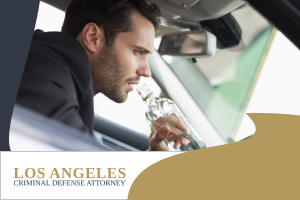
California vehicle code section 23152(a) provides the legal context of driving under the influence of alcoholic beverages. According to this law, an arresting officer has the reason to believe that a driver is intoxicated if they display apparent signs of intoxication. Even if the driver’s blood alcohol concentration is within 0.8%, they can still be accused of DUI.
Here are the elements of drunk driving according to this law:
- The defendant drove a vehicle;
- The defendant was intoxicated during the time they drive;
- The defendant committed a previous DUI offense within ten years from their second conviction.
On the other hand, California vehicle code 23152(b) states that driving with a blood alcohol concentration of more than 0.8% is unlawful. Unlike the previous law, this statute requires the presence of a BAC greater than 0.8% to be arrested for DUI.
Here are the elements of DUI according to this law:
- The defendant was driving a motor vehicle;
- The defendant’s BAC is greater than 0.8%;
- The defendant committed a previous DUI offense within ten years from their second conviction.
Will You Lose Your Driver’s License?
The decision of your DMV hearing determines the fate of your driver’s license. The California DMV has the legal power to invoke a driver’s license suspension, revocation, or restriction. There are two reasons why the DMV will suspend your license.
- You are found violating Vehicle Code 23152(a) or 23152(b).
- You failed to request a DMV hearing within ten days of your arrest, or you lost a DMV hearing.
If the court found you guilty of transgressing Vehicle Code 23152(a) or 23152(b), you can lose your license for two years. This event is called the court-triggered suspension.
In contrast, a suspension of license due to losing a DMV hearing or failing to request a hearing is called an Administrative Per Se (APS) suspension. In APS suspension, the defendant will have their license suspended for one year.
However, suppose you complied with the DMV’s requirements, such as submitting to a sobriety test and installing an IID. In that case, you can obtain a restricted license 90 days after your license suspension.
Will You Have a Permanent Criminal Record?
In California, you may have the option to remove your second DUI offense from your criminal record through expungement. A convicted defendant may request expungement if they underwent probation and completed the required amount of probation time.
A DUI expungement works similarly to every other criminal offense. Your party will need to file a petition for expungement. A judge will evaluate this petition. Suppose the judge grants your petition for expungement. In that case, you will need to withdraw your no contest plea or guilty plea.
After that, you will have to re-enter a not guilty plea. Once acknowledged by the court, your case may be dismissed from your record.
What Factors Can Increase Your DUI Punishments?
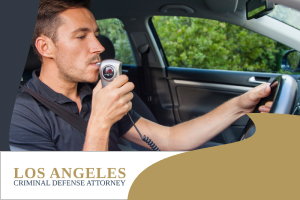
Several facts in your case could worsen the punishment you can receive. These facts are called aggravating factors. Similar to a first offense DUI conviction, the court will assess the facts presented by both parties and identify any factors that could enhance your penalties.
Here are some of the known aggravating factors in a DUI conviction in California:
- A sobriety breath test showing a blood alcohol content of greater than 0.15%;
- Declining the mandatory sobriety test;
- An intoxicated defendant is proven to have caused the accident;
- The intoxicated defendant is a minor under 21 years old at the time the accident occurred;
- The defendant drove at an excessive speed;
- The defendant drove recklessly with a minor below 14 years old.
These aggravating factors will enhance the penalties incurred by the defendant. It’s crucial to discuss this with your criminal defense attorney to devise an effective legal strategy addressing these factors.
Second Time DUI Penalties in Los Angeles, California
The penalties you may incur after a 2nd DUI offense will largely depend on the facts recovered from your case. Generally, the court will impose greater punishment than a first offense DUI. If you are facing a 2nd DUI offense in Los Angeles County, here are some of the possible penalties you may face:
- The defendant may face three to five years of summary probation;
- The defendant may face a minimum mandatory 96 hours of a jail sentence. The defendant may also face up to one year in county jail depending on the severity of their case;
- The defendant may be required by the law to complete an 18-month to 30-month of DUI school;
- The DMV may require the defendant to install an ignition interlock device for up to one year;
- The defendant may have their license suspended by the DMV for two years. After 12 months of suspension, they may obtain a restricted license. The defendant may acquire a restricted license immediately to verify that they installed an IID to their vehicle.
Defendants must keep in mind that a DUI probation includes the following conditions:
- The defendant is not allowed to drive with any measurable amount of BAC;
- The convicted defendant may not refuse to submit to a breath test when required by an officer;
- The defendant may not be involved in any crimes.
Defense Strategies for Second Time DUI Charges in Los Angeles, CA
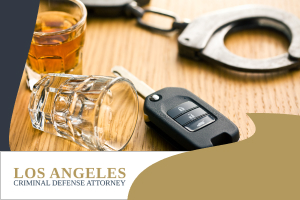
There are several ways a defendant can argue for his position in a DUI case. It’s vital that the defendant’s defense aligns with the facts surrounding the case. In Los Angeles, here are some of the most used defense strategies in a DUI case.
Lack of Probable Cause
As established above, several elements must exist to hold a defendant liable in a DUI case. However, there are instances when a defendant is accused of causing a drunk driving accident without a feasible cause. For a police officer to lawfully arrest a person of DUI, they must provide a shred of solid evidence to justify their action.
If you believe you were convicted without probable cause, your party can establish a legal defense around this claim. Your lawyer can challenge the legitimacy of the arrest made by the responding officer.
Suppose the officer has no reasonable suspicion to initiate a DUI investigation. In that case, your party can file for a motion to suppress evidence. This means that the officer accusing you of DUI cannot continue their search for evidence to convict you.
Field Sobriety Tests Are Unreliable

Like any other diagnostic tool, a breath analyzer requires calibration to ensure an accurate and precise result. However, there are circumstances when the arresting police officer fails to calibrate their apparatus regularly. This could produce inaccurate blood alcohol concentration results. This could mean that the outcome of a breath test is not reliable.
Your party can challenge the reliability of the breath analyzer if you have a reasonable belief that the result is inaccurate. There are also other external factors affecting the accuracy of a breath test result. Factors such as contaminants, proper storage, and environmental conditions could affect the accuracy of the test result.
When fighting a DUI arrest, it’s crucial to rule out other factors that could affect the reliability of the breath test result. Your lawyer will question the arresting officer about the maintenance and precision of the breath analyzer used during the arrest.
Mouth Alcohol
Mouth alcohol is defined as the trace amount of alcohol left in the mouth after ingesting alcohol. Besides drinking alcoholic beverages, using alcohol-based products such as mouthwash could produce a ‘mouth alcohol’ effect. This effect could produce a falsely increased blood alcohol concentration result.
Because of this effect, the administering body must be a trained officer or a drug recognition expert with adequate training with the tool. Some of the best practices when administering breath tests are as follows:
- The person administering the test must wait for fifteen minutes before conducting the examination;
- The administering person must ensure that the defendant did not burp or regurgitate;
- The administering person must ensure that the defendant did not use any alcohol-based mouthwash or any other items that might cause interference with the test.
Breath analyzers are not a confirmatory test to identify intoxication. However, it helps officers identify if a person consumed alcohol before driving.
Officer Failed to Comply with Title 17 Regulations
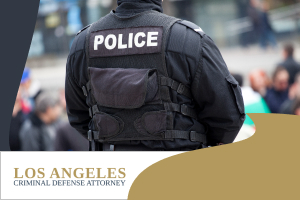
The California law established Title 17 to outline the appropriate administration of a BAC test in DUI cases. This law defines the collection process, storage requirements, viability of samples, and proper specimen handling. Failing to observe the procedures provided by this statute could negatively affect the DUI test outcome.
Here are some of the provisions outlined in this law:
- An authorized professional may use a blood sample to identify the blood alcohol concentration;
- The authorized technician must not use any alcohol-based cleanser to sterilize the collection site;
- The blood collection tube must contain adequate preservatives to retain the viability of the blood sample;
- The authorized technician must ensure that the blood vial used is not expired;
- The collected blood sample must be stored in appropriate conditions;
- If a breath sample is collected, the air must be a deep lung air;
- The administering officer must observe the defendant for about 15 minutes before initiating the breath test;
- The defendant must not burp, eat, smoke, or drink before taking the breath test;
- The police officer must calibrate the breath analyzer after 150 use or every ten days;
- If a urine sample is used, the defendant must first clear their bladder and provide a specimen twenty minutes after;
- The collecting technician must preserve the collected sample for up to one year.
Ignoring these established regulations puts the accuracy of the test at risk. The administering technician must receive training or orientation of Title 17.
Officer Failed to Observe the 15-Minute Observation Period
According to Title 17, the administering officer must observe you for 15 minutes before initiating a breath test. This window time allows the police officer to ensure that no possible interferences might affect the result. It also gives the officer enough time to assess whether you are drunk driving or not.
Certain circumstances exist when the administering officer initiates the test without observing the defendant. Because of this, some test results are inaccurately high due to contaminants. Suppose the police officer conducted the test without waiting for 15 minutes. Your party can use this as a defense at the court.
Unlawful DUI Checkpoint
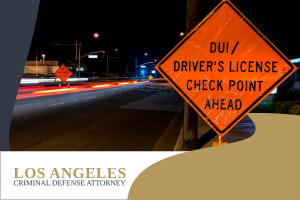
California vehicle code protects operators from unlawful search and seizures. This means that an officer cannot abruptly request you to pull over without reasonable suspicion. However, in a DUI checkpoint, a car operator must stop and allow police officers to check them.
Because of this, California law enacts stringent requirements for DUI checkpoints. Some of these requirements are as follows:
- The administrative police officer must decide on the location and time of operation of the DUI checkpoint.
- The DUI checkpoint officers must utilize a neutral mathematical criterion to stop a car. They cannot ask the car operator to stop based on their ethnicity, car model, and other biased factors;
- The DUI checkpoint must be situated in a reasonable location;
- The DUI checkpoint must be reasonably safe for every car operator;
- The DUI checkpoint must operate at a reasonable day and time;
- The DUI checkpoint must have signs and other indicators to inform approaching cars;
- The DUI checkpoint officer must complete the assessment within a reasonable time.
Rising Blood Alchohol Content
Driving under the influence is illegal in California. However, drivers are not restricted from drinking before operating a car as long as they are not impaired or underaged. In a legal context, impairment means the inability to recognize traffic signs or driving recklessly due to consuming large amounts of alcohol.
The phenomenon of rising blood alcohol describes that a person’s blood alcohol concentration continuously increases even after they stop drinking. In most cases, alcohol takes around 30 minutes to two hours before the body absorbs it completely.
Your party can challenge these breath test results with rising alcohol content. Your lawyer can contest that you already stopped drinking and consumed only an appropriate amount before driving. A toxicologist can look at the result of the breath analyzer to identify if your rising blood alcohol content claims are valid.
Blood Test Errors
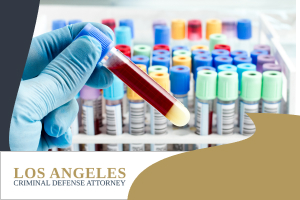
Like any other chemical test, several errors could interfere with a blood test result. In most blood toxicology tests, contamination is the most common cause of interference. Other sources of inaccurate blood test results are improperly labeled specimens. There are certain cases when a technician analyzes an incorrect sample.
Prolong storage of a specimen could also deteriorate some analytes crucial for the analysis. It’s critical for a technician to properly handle and store a DUI specimen. Title 17 provides the storage and handling requirements of a sample used for DUI analysis.
Breath Test Kit Errors
The accuracy of a breath analyzer is crucial in the analysis of a probable DUI case. Because of this, the police officer must routinely calibrate a breath analyzer after every 150 use or every ten days, whichever is applicable. Maintaining a breath analyzer in the top condition is vital in producing accurate results.
If you have reasonable suspicion of the viability of the result produced by the analyzer, your party can contest this. Your lawyer can question the routine calibration of the instrument. Suppose the officer did not keep the analyzer in mint condition. Your party can use this as a ground for the dismissal of your case.
Finding a DUI Lawyer Near Me | Los Angeles DUI Attorney Can Help
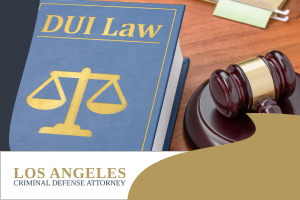
A repeated DUI conviction yields heavier penalties. It’s vital to seek the assistance of an experienced criminal defense attorney if you are in such situations. Attorney Seppi Esfandi is a renowned criminal defense lawyer in Los Angeles.
If you need expert legal assistance, call us now at 888-885‑8844 for a free consultation. We have defended countless DUI defendants in the past, and we can help you too! You can also submit your case details using our online contact form.

